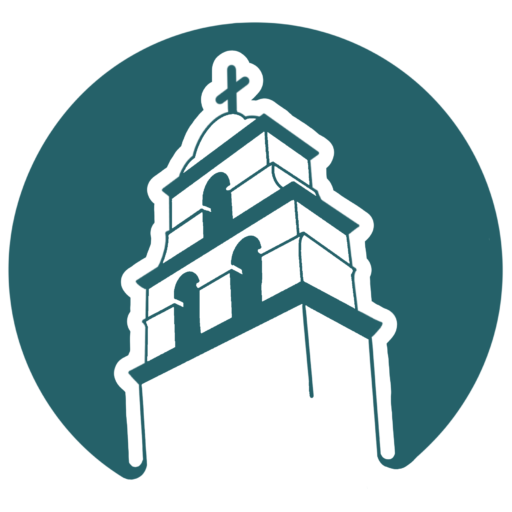Origin of baptism: Neither John nor Jesus invented baptism. It had been practiced for centuries among the Jews as a ritual equivalent to our Confession. Until the fall of the Temple in 70 A.D., it was common for Jewish people to use a special pool called a Mikveh — literally a “collection of water” – as a means of spiritual cleansing, to remove spiritual impurity and sin. Men took this bath weekly on the eve of the Sabbath; women, monthly. Converts were also expected to take this bath before entering Judaism. The Orthodox Jews still retain the rite. John preached that such a bath was a necessary preparation for the cataclysm that would be wrought by the coming Messiah. Jesus transformed this continuing ritual into the one single, definitive act by which we begin our life of faith. In effect, He fused His Divine Essence with the water and the ceremony.
———————————————————————-
The late Nelson Mandela will go down as one of the greatest leaders of this century. He was instrumental in ending apartheid and bringing about a multiracial society in South Africa. Mandela belonged to the Xhosa people, and grew up in the Transkei. But how did he come to play such a crucial role in the history of his country? In his autobiography, Long Walk to Freedom, he tells us that all the currents of his life were taking him away from the Transkei. Yet he had no epiphany, no singular revelation, no moment of truth. He says: “A steady accumulation of insights helped me to see that my duty was to the people as a whole, not to a particular section of it. The memory of a thousand indignities produced in me anger, rebelliousness, a desire to fight the system that imprisoned my people. There was no particular day on which I said, ‘Henceforth, I will devote myself to otherwise” (Flor McCarthy in Sunday and Holy Day Liturgies).
——————————————————————-
A friend of mine vouches for the truth of the following incident. He was traveling down the country one day. His journey brought him along some by-roads, where the signposts were few and far between. After a while, he was unsure if he was on the right road to the village he was going to, so he decided to ask the first person he saw. Eventually he came across a farmer driving his cows home for milking. He stopped the car and asked him if he was on the right road to the village he was going to. The farmer told him that he certainly was on the right road. My friend expressed his thanks and was about to move forward when the farmer added, in a very nonchalant way, “You’re on the right road, but you’re going in the wrong direction!” Today’s reflection on Jesus’ baptism challenges us to examine whether we are on the right road and moving in the right direction for our eternal destiny
Origen del bautismo: ni Juan ni Jesús inventaron el bautismo. Se había practicado durante siglos entre los judíos como un ritual equivalente a nuestra Confesión. Confesión. Hasta la caída del Templo en el año 70 d.C., era común que los judíos usaran una piscina especial llamada Mikve, literalmente una “colección de agua”, como un medio de limpieza espiritual, para eliminar la impureza espiritual y el pecado. Los hombres tomaban este baño semanalmente en la víspera del sábado; mujeres, mensual. También se esperaba que los conversos tomaran este baño antes de ingresar al judaísmo. Los judíos ortodoxos aún conservan el rito. Juan predicó que ese baño era una preparación necesaria para el cataclismo que provocaría la venida del Mesías. Jesús transformó este ritual continuo en el único acto definitivo por el cual comenzamos nuestra vida de fe. En efecto, fusionó Su Divina Esencia con el agua y lav ceremonia.
——————————————————————–
El fallecido Nelson Mandela pasará a ser uno de los más grandes líderes de este siglo. Jugó un papel decisivo para poner fin al apartheid y crear una sociedad multirracial en Sudáfrica. Mandela pertenecía al pueblo Xhosa y creció en Transkei. Pero, ¿cómo llegó a desempeñar un papel tan crucial en la historia de su país? En su autobiografía, Long Walk to Freedom, nos cuenta que todas las corrientes de su vida lo estaban alejando del Transkei. Sin embargo, no tuvo ninguna epifanía, ninguna revelación singular, ningún momento de la verdad. Él dice: “Una acumulación constante de conocimientos me ayudó a ver que mi deber era para con la gente en su conjunto, no con una sección en particular. El recuerdo de mil indignidades me produjo rabia, rebeldía, ganas de luchar contra el sistema que aprisionaba a mi pueblo. No hubo un día en particular en el que dije: “De ahora en adelante, me dedicaré a lo contrario” (Flor McCarthy en las liturgias dominicales y de los días santos).
———————————————————————
Un amigo mío responde por la veracidad del siguiente incidente. Un día estaba viajando por el país. Su viaje lo llevó por algunas carreteras secundarias, donde las señales eran pocas y distantes entre sí. Después de un tiempo, no estaba seguro de si estaba en el camino correcto hacia el pueblo al que se dirigía, por lo que decidió preguntarle a la primera persona que vio. Finalmente se encontró con un granjero que llevaba sus vacas a casa para ordeñarlas. Detuvo el auto y le preguntó si estaba en el camino correcto hacia el pueblo al que se dirigía. El granjero le dijo que ciertamente estaba en el camino correcto. Mi amigo expresó su agradecimiento y estaba a punto de avanzar cuando el granjero agregó, de una manera muy indiferente: “¡Estás en el camino correcto, pero vas en la dirección equivocada!” La reflexión de hoy sobre el bautismo de Jesús nos desafía a examinar si estamos en el camino correcto y avanzando en la dirección correcta para nuestro destino eterno.
